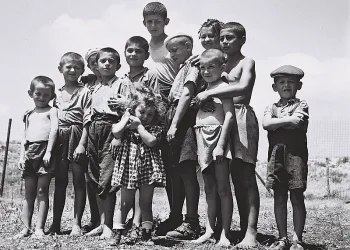The bond between Armenia and the European Union reached a new milestone this week as High Representative and Vice-President Kaja Kallas visited Yerevan, announcing several key initiatives designed to deepen cooperation and promote stability across the region.
Her remarks at the joint press conference with Armenia’s Foreign Minister underlined not only the EU’s growing support for Armenia but also the wider implications for regional peace and economic development.
A New Chapter in Armenia-EU Relations
Kallas made it clear that the EU and Armenia have never been more aligned. She praised Armenia’s recent decision to launch the EU accession process, calling it a sign of “readiness to deepen our partnership.”
The cornerstone of this new chapter is the €270 million Resilience and Growth Plan, set to run from 2024 to 2027.
This ambitious package aims to:
-
Strengthen Armenia’s economy and business environment.
-
Improve transport and digital connectivity between Armenia and Europe.
-
Support reforms to enhance governance and resilience.
These developments reflect the EU’s broader commitment to supporting Armenia’s democratic trajectory and regional stability.
Visa Liberalisation: Bringing Armenia and Europe Closer
In a move welcomed by many Armenians, Kallas announced progress on visa liberalisation efforts. The European Commission has adopted its proposal for an action plan, paving the way for Armenian citizens to travel more freely within Europe — once all requirements are met.
Armenia-EU Partnership Highlights
| Initiative | Details | Timeline |
|---|---|---|
| EU Resilience & Growth Plan | €270 million for economic development and reforms | 2024 – 2027 |
| Visa Liberalisation Action Plan | Eases travel for Armenians within the EU | Ongoing, conditions pending |
| Political Partnership Agenda | Focus on economic, security, and connectivity priorities | Agreement reached, implementation begins |
Peace, Stability, and Security at the Forefront
Beyond economics, Kallas emphasised the EU’s role in promoting peace in the South Caucasus. The ongoing efforts to normalise relations between Armenia and Azerbaijan remain a top priority.
“We are encouraged by the progress, but we want to see the peace process finalised as soon as possible,” Kallas stated, confirming that this message was also conveyed during her recent visit to Baku.
The EU’s civilian mission in Armenia is already playing a critical role in fostering security and confidence-building. Furthermore, Armenia has now signed a framework agreement allowing it to participate in EU-led crisis management missions worldwide.
Defending Democracy and Combating Hybrid Threats
Kallas also highlighted shared values of democracy and freedom, noting the importance of safeguarding these principles in the face of hybrid threats, disinformation, and foreign interference — issues that have intensified across the region since Russia’s aggression against Ukraine.
In support of Armenia’s democratic resilience, the EU is providing substantial funding for independent media, ensuring that free, reliable journalism can continue to thrive.
A Strategic Future with the Black Sea Strategy
The recently adopted EU Black Sea Strategy offers new opportunities for regional collaboration. Armenia, despite being landlocked, plays an essential role in connectivity initiatives under this strategy, further integrating the country into broader European security and prosperity frameworks.
A Partnership Built on Shared Values and Practical Progress
Kallas’s visit to Yerevan marks a pivotal moment for Armenia’s future within the European community. With economic support, political partnership, and enhanced mobility on the horizon, both sides appear determined to turn words into meaningful action.
As Armenia moves towards deeper integration with the EU, the message is clear — stronger ties mean greater stability, prosperity, and opportunity for all.
Sources: European Union.
Prepared by Ivan Alexander Golden, Founder of THX News™, an independent news organization delivering timely insights from global official sources. Combines AI-analyzed research with human-edited accuracy and context.







